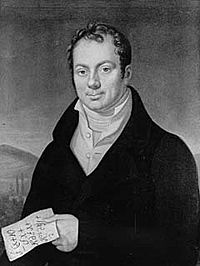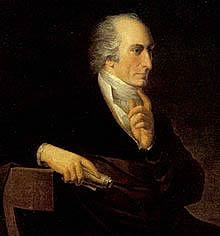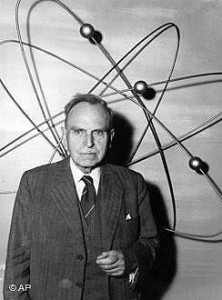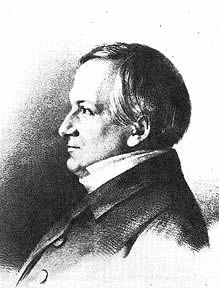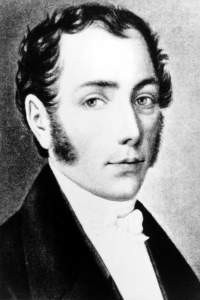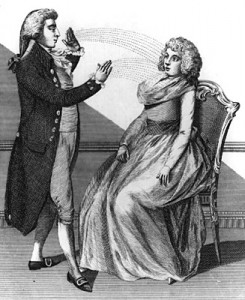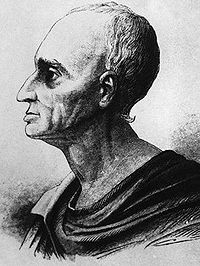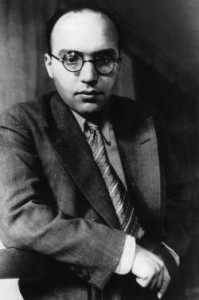March 11, 1780 Birth of August Leopold Crelle (1780-1855) in Eichwerder, Germany. Crelle was a mathematician who founded the prestigious journal, Crelle's Journal (original name: Journal für die reine und angewandte Mathematik) in 1826. March 11, 1850 A constitution is adopted in Prussia. March 11, 1894 Birth of Otto … [Read more...]
March 10 in German History
March 10, 1503 Birth of Ferdinand I in Alcala de Henares, Spain. The Spanish born Habsburg, Ferdinand, would become the Holy Roman Emperor, and the king of Bohemia and Hungary. In the "Peace of Augsburg" of 1555 he agreed to the right of regional princes to determine the religion of their own territories. March 10, 1615 Death of St. John … [Read more...]
March 9 in German History
March 9, 1009 Death of St. Bruno von Querfurt (970 – 1009) Bruno was educated at the cathedral school in Magdeburg. He later entered a monastery and took his vows in 999. He was sent as a missionary to Poland. In 1008 he sought to found a mission among the Prussians. He and his companions were killed by the resentful pagans there. He was soon … [Read more...]
March 8 in German History
March 8, 1714 Birth of Carl Phillip Imanuel Bach in Weimar, Germany. He was the son of Johann Sebastian and Maria Bach. His first position was that of harpsichordist to Friedrich II of Prussia. In 1767 he became music director in Hamburg. In addition to the great music he composed, he is noted for his book, Versuch über die wahre Art das Klavier … [Read more...]
March 7 in German History
March 7, 1795 Birth of Ludwig von Gerlach in Berlin, Germany. Gerlach was a conservative politician who opposed the unification of Germany in 1871 and opposed Bismarck's Kulturkampf of 1872-1872 (a power struggle against the Catholic Church). Gerlach was a member of the Catholic Center Party, although he was personally a Protestant. March … [Read more...]
March 6 in German History
March 6, 1787 Birth of Joseph von Fraunhofer in Straubing, Germany. The physicist, Fraunhofer, was the first to observe the dark lines in the spectrum of the sun, which became known as Fraunhofer lines. In his further work he discovered and charted similar spectral lines in the elements. His work led to the development of the technique of … [Read more...]
March 5 in German History
March 5, 1198 The Teutonic Knights are established as a military order in a ceremony at Acre in Palestine. The order had been established originally in 1191 with the purpose of providing medical and spiritual attention to the sick and wounded Crusaders from Germany. The need for additional combatants, however, led to the decision to arm the lay … [Read more...]
March 4 in German History
March 4, 1152 Friedrich I (Barbarossa) is elected German King in Frankfurt. (He then became Emperor of the Holy Roman Empire.) March 4, 1782 Birth of Johann Rudolf Wyss in Bern, Switzerland. Wyss edited and published a book his father had written with his four sons, Der schweizerische Robinson (1827). The book was translated into nearly … [Read more...]
March 3 in German History
March 3, 1033 Death of St. Kunigunde von Luxembourg (ca. 980–1033) St. Kunigunde was the daughter of Count Siegfried of Luxembourg. In 999 she married emperor Heinrich II of the Holy Roman Empire (a.k.a. the German Empire). They were married in Paderborn, Germany. She was crowned as empress by Pope Benedict VIII in Rome. In 1017 she founded … [Read more...]
March 2 in German History
March 2, 1481 Birth of Franz von Sickingen in Ebernburg, Germany. A character in Goethe's play, Götz von Berlichingen, the historic Sickingen was a defender of the Protestant cause in Germany. His end came when he declared war on Richard of Greiffenclau, the archbishop of Trier and was defeated. After that defeat he gradually lost support and … [Read more...]
- « Previous Page
- 1
- …
- 25
- 26
- 27
- 28
- 29
- …
- 37
- Next Page »
